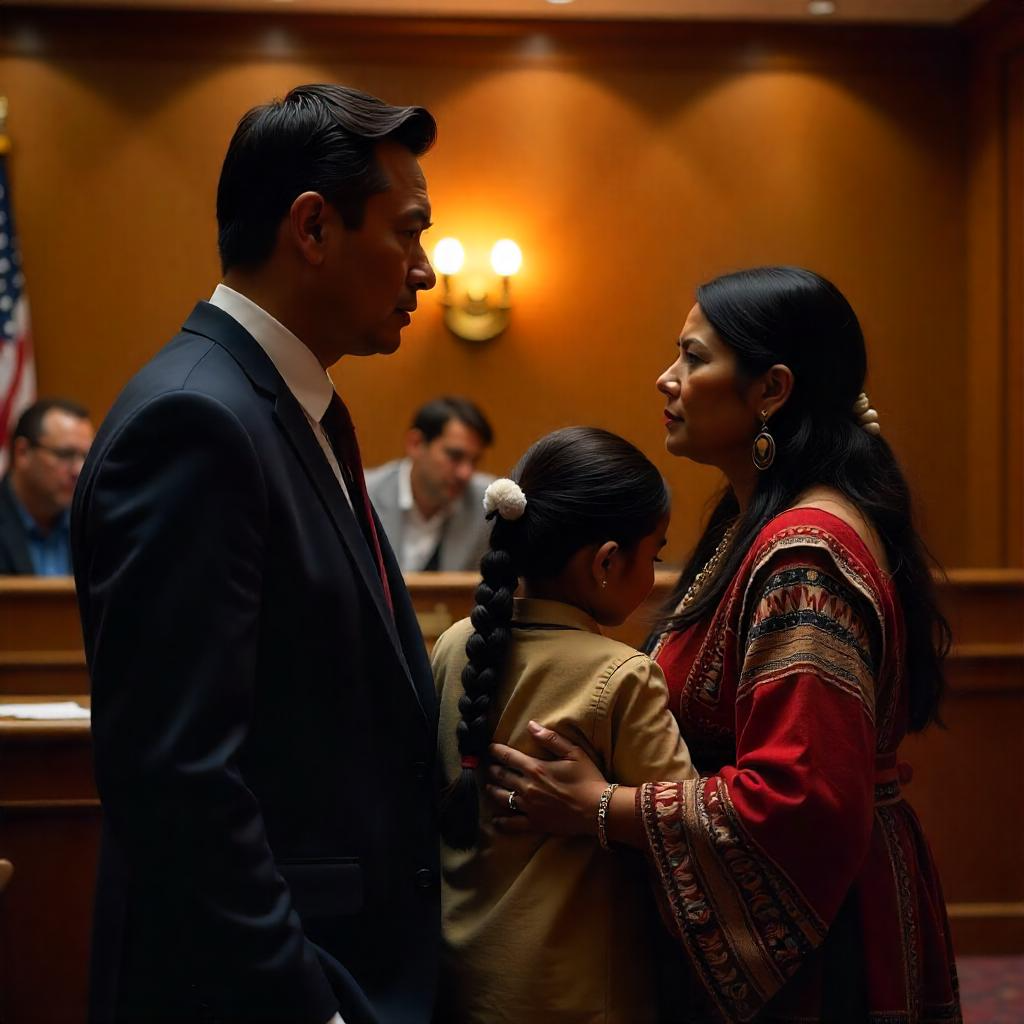
How to Win Custody Back from Grandparents in Texas
In Texas, custody situations can become complex when grandparents assume care of a child due to a parent’s temporary inability to provide a safe or stable environment. Whether prompted by illness, substance abuse, financial instability, or legal troubles, these arrangements are often intended to be temporary. However, regaining custody can become difficult, especially when legal orders or emotional attachments have formed.
At Mokolo Law Firm, we recognize how deeply parents desire to reunite with their children and rebuild their families. The good news is that Texas law supports biological parents who demonstrate meaningful changes in their circumstances and can prove that regaining custody is in the child’s best interests.
How to Win Custody Back from Grandparents in Texas
This guide breaks down the legal process, your rights as a parent, and practical strategies for successfully winning custody back from grandparents in Texas.
Understanding Why Grandparents Gain Custody
Grandparents typically obtain custody under circumstances such as:
- The parents are unable to provide adequate housing or supervision.
- Substance abuse, neglect, or domestic violence concerns exist.
- Parents voluntarily transfer custody during hardship or divorce.
- A court awards a temporary managing conservatorship or a Special Guardianship Order to the grandparents.
These arrangements are designed to protect the child, but they are not permanent by default. Texas law allows parents to regain custody if they can prove a substantial change in circumstances and that custody restoration serves the child’s welfare.
@legallyuzo My powerhouse team and I are working to get you the outcomes you deserve. When you work with us, you’re not just hiring a lawyer; you’re gaining a team that truly has your back. #Divorce #childcustodylawyer https://www.mokololaw.com/practice/divorce-and-family-law
♬ original sound – Legallyuzo – Legallyuzo
Legal Steps to Win Custody Back from Grandparents
1. Review the Original Custody Order
Understanding the court’s rationale for placing the child with grandparents is critical. Was it due to unsafe housing, criminal charges, addiction, or another factor? This helps you build a case around overcoming those issues.
2. Demonstrate a Significant Change in Circumstances
You must show that the concerns that led to the custody transfer have been resolved. Evidence may include:
- Stable and secure housing
- Completion of rehab or parenting classes
- Steady income and employment
- Clean criminal record or discharge from probation
- Positive parenting evaluations
3. File a Petition to Modify Custody
Legally known as a Suit to modify the parent-child relationship, this petition asks the court to reverse or amend the custody order. The burden of proof lies with the parent, who must demonstrate that the change benefits the child.
4. Engage in Mediation (If Possible)
Before going to court, mediation can help resolve custody amicably. If the grandparents are cooperative, this may result in a smoother transition back to parental custody without litigation.
5. Prepare for a Court Hearing
If no agreement is reached, your case will go before a family court judge. Mokolo Law Firm can help you present clear evidence, expert testimony (such as a home study), and arguments focusing on the child’s best interests.
Custody Disputes and Grandparents’ Rights
It’s important to understand that grandparents do not have automatic custody or visitation rights in Texas. They must petition the court just like anyone else. If you believe a grandparent’s custody is no longer appropriate, due to their age, illness, or inability to provide proper care, you may ask the court to terminate or modify the custody arrangement.

Evidence To Help Win Custody Back
To build a strong case, gather the following:
- Proof of stable housing (lease, mortgage, utility bills)
- Pay stubs or employment verification
- Completion certificates (parenting classes, rehab, therapy)
- Medical or psychological evaluations (if applicable)
- Character references from employers, pastors, or social workers
- Proof of your ongoing relationship with the child (visitation logs, photos, communication records)
Frequently Asked Questions (FAQs) On How to Win Custody Back from Grandparents in Texas
Can I Get Custody Back Without a Lawyer?
Yes, it’s legally possible, especially if the grandparents agree to return custody. However, contested cases involve complex legal and emotional factors. A skilled attorney ensures your parental rights are protected and your case is presented effectively.
What If the Grandparents Refuse?
If grandparents oppose returning custody, you’ll need to demonstrate in court that returning the child to your care is safe and in their best interest. Courts weigh your improvements heavily against the current caregiving situation.
Can My Child’s Wishes Influence the Outcome?
Yes. In Texas, the court may consider the child’s wishes, especially if the child is 12 years or older. However, the child’s preference is one factor among many; the ultimate decision is based on the child’s welfare.
Can I Regain Custody Without Going to Court?
Yes, if the grandparents agree to return custody voluntarily, and no formal guardianship or court order prevents it. Even with a court order, meditation may lead to a mutual agreement that can be submitted for court approval.
Can Special Guardianship or Temporary Orders Be Reversed?
Yes. Special Guardianship Orders and temporary custody arrangements can be modified or revoked if circumstances improve. Parents retain their legal rights unless those rights were terminated by the court, which is rare and extreme.
Final Thought on How to Win Custody Back from Grandparents in Texas
Reuniting with your child after a period of separation is both an emotional and legal journey. While it can be challenging to win custody back from grandparents in Texas, the law provides a clear path forward for parents who have transformed their circumstances and are ready to care for their children again.
At Mokolo Law Firm, we are committed to helping parents navigate every stage of the custody restoration process. Whether through negotiation, mediation, or litigation, our goal is to reunite families because every child deserves the love and support of a safe, stable parent.
Contact us today to schedule a consultation and take the first step toward regaining custody of your child.

How Is Child Custody Decided In Texas?
Child custody is one of the most important and challenging processes that parents face during a divorce. Children are often the most valuable shared responsibility for which a divorced couple must make arrangements. There are several types of child custody agreements that a couple may choose from, or that a court may determine to be in the best interest of the child. While joint custody is a common form of split custody, there is often one parent who holds primary physical custody, even though both parents share legal custody. In other situations, the court may find it more appropriate to grant one parent sole custody of the child.
Under Texas law, courts are required to make child custody decisions based on what serves the best interest of the child. Judges encourage parents to first attempt to reach an agreement through mediation. If the parents are unable to resolve matters on their own, a family court judge will intervene.
Factors That Influence Child Custody in Texas
The court considers multiple factors to determine the best environment for a child’s growth and well-being. Some of the key elements that influence the court’s decision include:
- The specific needs of the child
- The parent–child relationship prior to the separation
- Records of domestic violence or other criminal behavior
- The stability of each parent’s home environment
- The quality and continuity of the child’s education
- Each parent’s employment status
The court may also take into account the child’s personal preferences, depending on the circumstances. Using these factors, the judge will determine the most suitable custody arrangement for the child.

Types of Custody in Texas
Texas recognizes three primary types of conservatorship:
Joint Conservatorship
In a joint conservatorship, both parents share custody. This does not necessarily mean the child will spend equal time with both parents. Rather, it means both parents have the right to participate in decisions regarding the child’s moral and religious upbringing, medical care, and other key aspects of their welfare. They also share duties in providing for and protecting the child.
Sole Conservatorship
Sole conservatorship is the Texas equivalent of sole legal custody. In this arrangement, one parent is given the primary right to raise the child and make key decisions regarding their care.
Possessory Conservatorship
A possessory conservator is a parent who has visitation rights. While they can spend time with the child, they do not hold the same decision-making authority as the custodial parent.
Court orders often define parental rights on a case-by-case basis. For instance, even within a joint managing conservatorship, the court may give one parent the exclusive right to determine the child’s primary residence. Ultimately, the court’s objective is to ensure that the custody arrangement serves the child’s best interests.
@legallyuzo What do you need to win a case? Everything!!! Visit: https://mokololaw.com for consultation #LawFirm #Divorce #childsupport
♬ original sound – Legallyuzo –
Rights of a Parent Without Legal Custody in Texas
In accordance with Texas law, a possessory conservator may still retain many rights similar to those of a managing conservator. The specific rights and responsibilities are outlined in the court’s custody order. A lack of decision-making rights does not exempt a parent from responsibilities. For example, even if a possessory conservator has limited authority over the child’s upbringing or medical decisions, they may still be required to pay child support.
Final Thoughts On How Is Child Custody Decided In Texas?
Texas courts typically presume that shared custody is in the child’s best interests. However, this does not mean that all duties must be divided equally. Parents are expected to create a parenting plan that addresses their child’s needs.
Contact a Texas Child Custody Attorney
Working with an experienced Texas lawyer is crucial when dealing with child custody matters. A child custody attorney can assist in negotiating custody arrangements or recommend mediation if discussions break down. At Mokolo Law Firm, we are here to help if you have further questions or need legal support with a child custody case.


